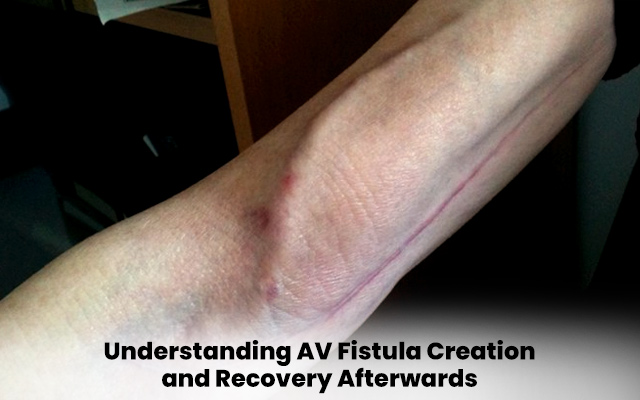If you’ve been advised to undergo dialysis, you might have come across the term “AV fistula.” It’s a crucial part of the process, but what exactly is it, and how does it help?
Let’s break it down in simple terms so you know what to expect before, during, and after AV fistula surgery.
What Is an AV Fistula?
An Arteriovenous (AV) fistula is a connection made between an artery and a vein, usually in the arm. This is done through a minor surgical procedure to create an access point for dialysis. Over time, the fistula enlarges, making it easier to insert dialysis needles and ensuring better blood flow during treatment.
AV fistulas are considered the best option for dialysis access because they:
- Provide better blood flow for dialysis
- Have a lower risk of infection compared to other access types
- Last longer with proper care
If you need an AV fistula, you’ll likely have the procedure done at a multi specialty surgical day care hospital in Kolkata, where expert surgeons ensure a smooth and safe experience.
The AV Fistula Creation Procedure
The procedure itself is relatively simple and usually takes about an hour. Here’s what happens:
- Preparation: Your doctor will check your veins and arteries using ultrasound to find the best spot for the fistula.
- Anesthesia: Local anesthesia is used, so you’ll be awake but won’t feel pain.
- Surgery: The surgeon makes a small incision and connects an artery to a vein.
- Closure: The incision is closed with stitches, and a bandage is applied.
Since this is a minor surgery, you can go home the same day after a short observation period. This is why choosing Vitadell Healthcare, the best multi specialty surgical day care hospital in Kolkata can be a convenient option.
Recovery after AV Fistula Surgery
Recovery is generally smooth, but it’s essential to take proper care of your fistula to ensure it matures well. Here’s what to expect:
Immediate Aftercare
- Keep your arm elevated to reduce swelling.
- Avoid lifting heavy objects or putting pressure on the fistula site.
- Watch for signs of infection like redness, swelling, or pus.
Fistula Maturation
An AV fistula doesn’t work immediately—it takes about 6 to 12 weeks to mature before it can be used for dialysis. During this time, the vein thickens and strengthens to handle the increased blood flow.
To help with this, your doctor may recommend simple hand exercises like squeezing a stress ball to improve blood flow.
Long-Term Care Tips
- Check your fistula daily by feeling for a vibration (called a thrill), which means it’s working properly.
- Avoid wearing tight clothing or jewellery on the fistula arm.
- Never let anyone take blood pressure or insert an IV in your fistula arm.
Regular check-ups at our multi specialty surgical day care hospital can help ensure your fistula remains in good condition.
When to Seek Medical Help
While complications are rare, be alert for these warning signs:
- No vibration or pulse in your fistula
- Severe pain or swelling
- Prolonged bleeding after dialysis
- Numbness or coldness in the fingers of the fistula arm
If you notice any of these, contact your doctor immediately. Early intervention can prevent serious issues.
Conclusion
An AV fistula is a crucial part of dialysis treatment, and understanding the procedure and recovery process can make a big difference in your experience. With the right care and regular check-ups at Vitadell Healthcare, a trusted multi specialty surgical day care hospital in Kolkata, you can ensure your fistula stays healthy for years to come.If you’re preparing for dialysis and need expert care, consult with a specialist to discuss the best options for you.

